It’s Okay to Not Know the Answer

No one has all the answers. If they did, we’d probably call them the Wizard of Oz! But we all know how that story ended. Pretending you’re someone you’re not only makes you look foolish in the end, and wastes everyone’s time. So that’s why I enjoyed reading this article from Artisan about how vital it is to say “I don’t know” when, in fact, you truly don’t know the answer. I think we can all look back to our early career days, when we were so eager to impress others and try and rise up the ranks, so we were quite often saying yes when the answer should well have been no! And the repercussions of our actions were often immediate.
Those of you who have followed my work and know about my fascination with brands who said yes when they should have said “I don’t know if this is a good idea,” may have seen my e-book, The Most Spectacular Brand Extension Failures, where I detail some of those learning moments.
Moments like BiC’s disposable women’s underwear – a product category completely unrelated to anything the company had made before. BiC had been successful in making disposable pens, lighters and razors, so they figured that making underwear women could wear once and then throw away would be as well-received which, of course, it was not. The product was taken off the shelves in 1999, causing undue brand confusion.
When brands act like they know things they don’t, such as how well certain products will be received by their consumer base, they get in trouble. Worse is when they fail to take ownership for their mistakes and make excuses. Some brands outperform others when they accept responsibility and then fix the problem. Coca-Cola did so in 1985 when they introduced New Coke. They quickly realized their mistake, told the world they made a mistake, asked for forgiveness, and brought back the original Coke as Coca-Cola Classic. As a result, Coke Classic had a massive rebound for years as people were thankful they had their original Coca-Cola back.
People, like brands, benefit greatly by admitting what and when they don’t know, as it also allows for a chance to learn, gain respect, and experience an overall sense of relief from no longer pretending to be the Wizard of Oz! Respect is earned from saying we don’t know when we don’t, but also from showing others we have mastered our craft and have valuable things to say most of the time. One can even have something valuable to say when a person doesn’t know the answer, like, “I don’t know the answer to that question, but I have a few places I can look to help me find the answer.” It’s okay to delegate and focus on what your true strengths are. We can’t be everything to everyone and brands – and people – fail when they try to do that.
Do you know any examples of brands that have made a mistake, but have failed to take ownership? What were the results?
If you’re interested in reading about more brand extension failures, I’m offering my e-book The Most Spectacular Brand Extension Failures to you for free! Just use the code “SPECTACULAR” at check-out.
